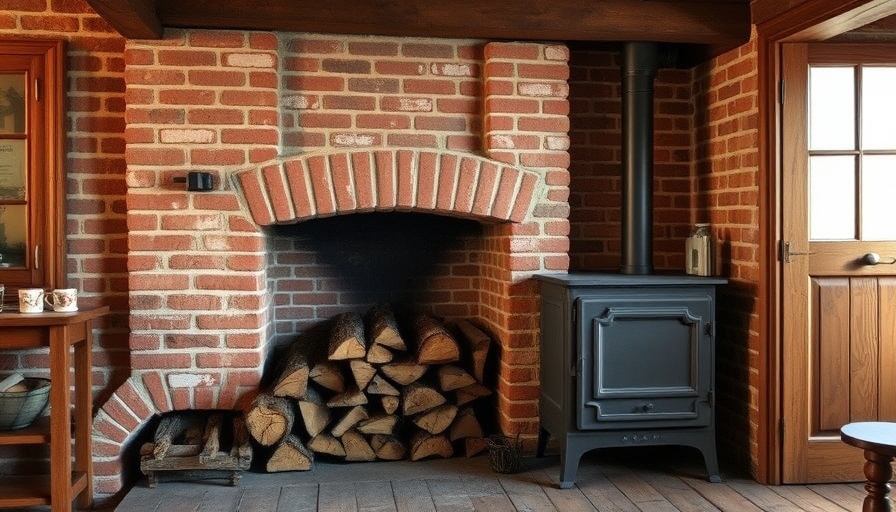
Understanding New Laws on Burning Wet Wood and Coal
England has recently updated its regulations regarding the burning of wet wood and coal, an effort aimed at improving air quality across cities and rural areas. These legislative changes follow growing concerns over air pollution, which poses health risks and contributes to climate change. The new rules prohibit the burning of wet wood that contains more than 20% moisture, establishing a standard intended to foster a cleaner burning process.
For those who enjoy DIY home projects, understanding these regulations is crucial, especially for enthusiasts considering the installation of wood-burning stoves or open fires. As DIYers often source wood from various locales, it’s important to ensure that the wood they use complies with the new moisture content standards. This regulation not only serves to protect the environment but also enhances the efficiency of heating systems in households.
Why Knowing This Matters to DIYers
For DIY enthusiasts, being informed about regulations around solid fuel use is essential for safe and responsible practices. Burning wet wood can lead to inefficient fires that produce excess smoke, resulting in increased emissions of harmful pollutants. DIYers who are not aware of these changes may find themselves unwittingly contributing to poor air quality in their communities.
Moreover, understanding the implications of these laws can inspire many to explore DIY alternatives that align with environmental standards. This could range from finding creative and efficient ways to use dry wood to exploring alternative heating methods.
The Benefits of User-Friendly Heating Solutions
Transitioning to compliant wood-burning methods has benefits beyond just legality. Using well-seasoned wood not only meets regulations but also ensures a better heating experience. Dry wood burns more efficiently, producing more heat while releasing fewer emissions, making for a win-win situation for domestic comfort and environmental health.
To further engage with this home improvement trend, consider the wealth of DIY projects that align with sustainable practices. From making firewood racks to storing wood in a way that promotes drying, there are numerous DIY hacks relevant to both aesthetics and functionality within your home.
Exploring Alternatives to Wood and Coal
As air quality continues to be a pressing issue, many homeowners are looking for alternatives to traditional wood and coal. Options such as gas fireplaces, electric heaters, and even pellet stoves are becoming increasingly popular.
Engaging in DIY projects that explore these alternatives can provide additional options for heating while maintaining a commitment to clean air initiatives. This could lead to innovations in energy-efficient home heating methods—ideal for the eco-conscious DIYer.
Making Your Home Environmentally Friendly
By embracing the new regulations and understanding their implications, DIYers can play an integral role in improving air quality and promoting sustainability. Engaging in DIY home projects that focus on eco-friendliness doesn’t just improve your home; it also contributes to the broader community effort in combating climate change.
For example, creating a DIY garden area can enrich your home while using organic approaches that enhance local ecosystems. Sometimes, these small projects can create big shifts within communities.
Final Thoughts on Compliance and DIY
The recent changes in laws regarding the burning of wet wood and coal represent a significant step towards better air quality in England. For DIY enthusiasts, adhering to these regulations is not only a legal obligation but also an opportunity to engage in more responsible and sustainable practices. Explore new DIY projects that support clean air initiatives, from building your own outdoor wood storage solutions to discovering alternative energy sources.
Let’s commit to being informed consumers and builders by aligning our DIY endeavors with the principles of sustainability. By doing so, we not only enhance our living spaces but also contribute positively to our environment.
 Add Row
Add Row  Add
Add 




Write A Comment